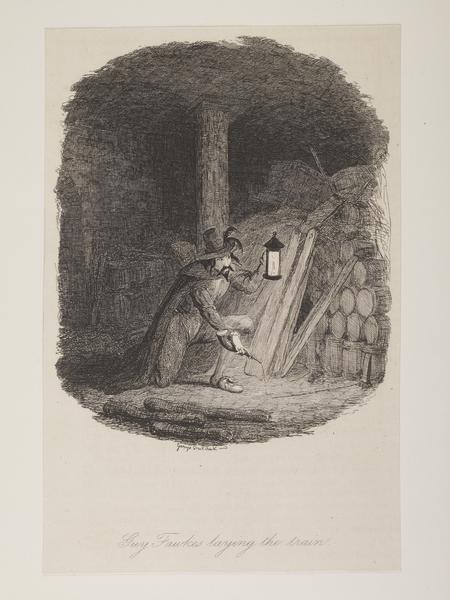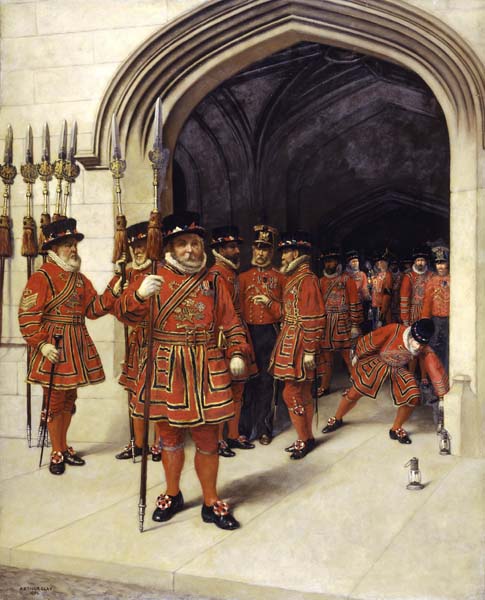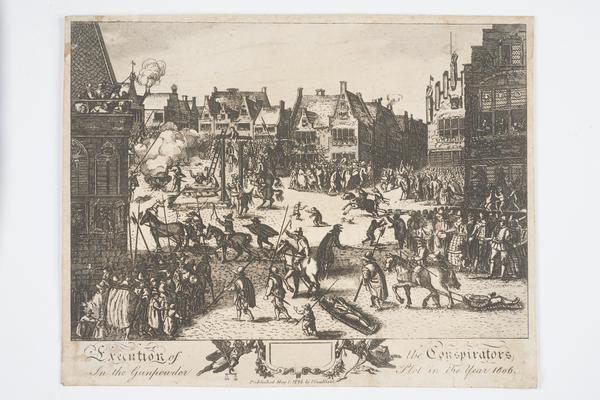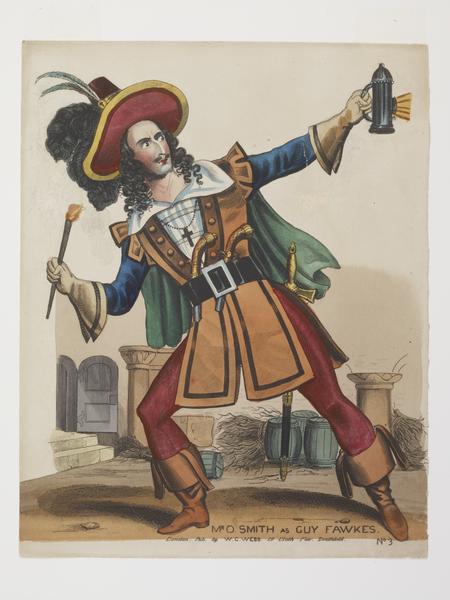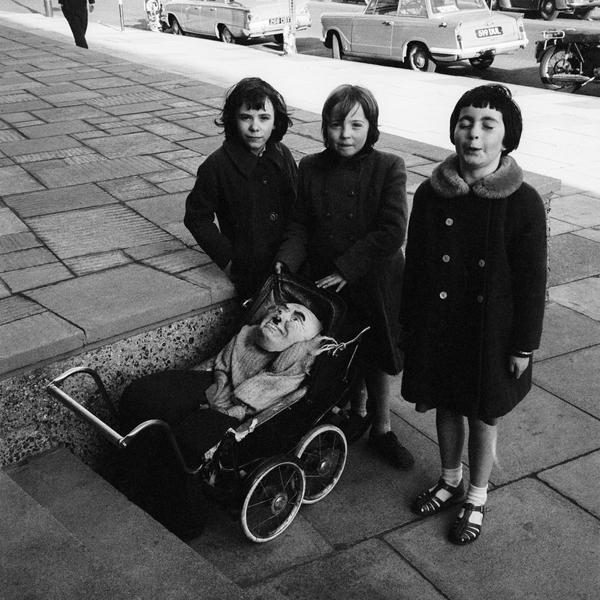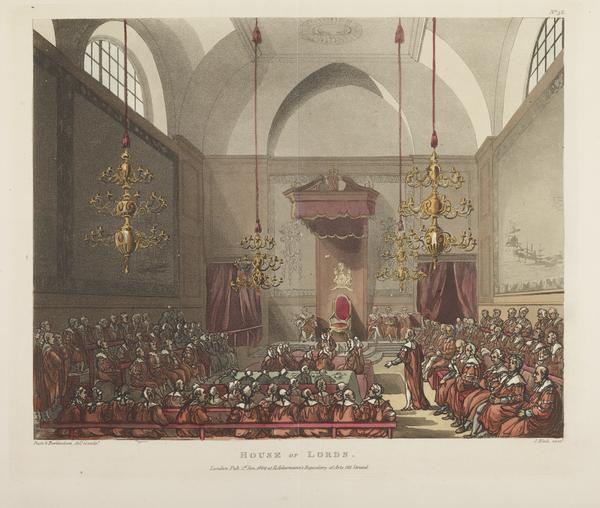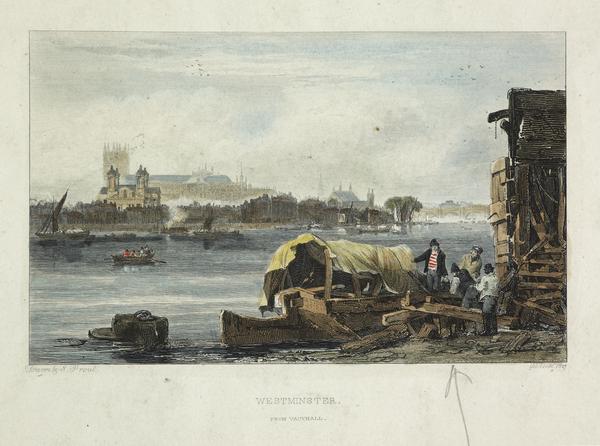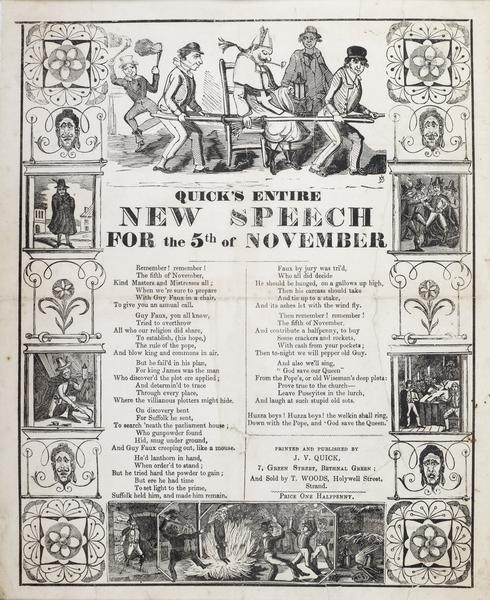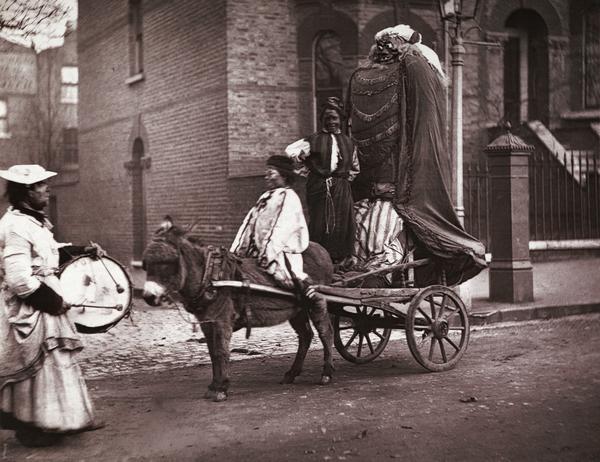Guy Fawkes & the Gunpowder Plot
In 1605, Guy Fawkes was part of a plot to blow up Parliament and kill King James I. The plan’s failure has been celebrated ever since on 5 November – Bonfire Night.
Houses of Parliament, Westminster
5 November 1605

This engraving from 1605 shows the members of the Gunpowder Plot, including "Guido Fawkes".
Gunpowder, treason and plot
The men behind the plot were Catholics, a religious group who suffered discrimination during the reigns of the Protestant monarchs Elizabeth I and James I.
Wanting a Catholic in power, the plotters hid nearly a ton of gunpowder underneath the Houses of Parliament. They planned to detonate it at the opening of Parliament – on 5 November.
Fawkes and the gunpowder were discovered – and all of the plotters either killed or executed.
Their sensational failure became known as the Gunpowder Plot – one of the best-known events in British history.
Why did the plotters want to blow up Parliament?
During the 1500s, a religious revolution called the Reformation created a new branch of Christianity, opposed to the old Catholic beliefs. This was Protestantism.
Protestantism became the dominant religion in England. Catholics who didn’t convert were punished.
Led by a Catholic gentleman called Robert Catesby, the 1605 Gunpowder Plot aimed to kill the Protestant King James I and put a Catholic on the throne instead.
The plan centred on the 5 November opening of Parliament. For this ceremony, the king, his son and the Members of Parliament would all be gathered at the Houses of Parliament. One explosion could kill them all.
Who was Guy Fawkes?
Guy Fawkes, also known as Guido Fawkes, was born in York in 1570. After his father died in 1579, his mother married a Catholic, and Fawkes also adopted the religion.
Fawkes became a soldier, fighting in Europe for the army of Spain, a Catholic country. He even tried to persuade the Spanish to invade England.
Fawkes was recruited into the Gunpowder Plot in 1604. Having some experience with explosives, it was his job to plant and detonate the gunpowder.
“they shall receive a terrible blow this parliament”
Anonymous, The Monteagle Letter

This is the anonymous Monteagle letter which warned of an attack on Parliament, foiling the plot.
Why did their plan fail?
The plotters first tried digging a tunnel to hide the explosives in. They changed plans when a House of Lords basement became available to rent.
They moved 36 barrels of gunpowder there, hiding them under a pile of wood.
On the night of 4 November, Fawkes stationed himself nearby, waiting to light the trail of gunpowder which would trigger the explosion.
The plan was derailed when an anonymous letter warning that someone “shall deliver a terrible blow this parliament” was delivered to Lord Monteagle, a Catholic nobleman.
Monteagle raised the alarm, and Fawkes was discovered in the cellar, along with the gunpowder.
How did Guy Fawkes die?
After he was arrested, Fawkes was questioned, then tortured.
The other plotters were soon either captured or killed. Eight of them – including Guy Fawkes – were found guilty of high treason, and sentenced to be executed, by hanging, drawing and quartering.
In this gruesome punishment, the condemned were dragged behind a horse, hung by the neck, had their genitals cut off and guts removed, and were chopped into four pieces. Their body parts were then displayed in public places as a warning.

Eight of the plotters were publicly executed in London, as shown in this reproduction of a 17th-century etching.
Why do we celebrate Guy Fawkes Night?
In the UK, Guy Fawkes Night is celebrated every year on 5 November. It’s also known by the names Bonfire Night and Fireworks Night.
The tradition celebrates the failure of the Gunpowder Plot. It began in the years immediately after the 1605 plot, when Parliament made it law to hold special church services and light bonfires.
The bonfires have continued, while fireworks have featured since at least the 1650s. Fawkes became the villain of the tradition, with models of him made to be burned on the bonfires.
It’s also tradition for the royal bodyguards – the Yeomen of the Guard – to search the cellars of the Houses of Parliament before its opening ceremony.
And a handy rhyme has also become tied to the event:
Remember, remember, the fifth of November,
Gunpowder, treason and plot.
I see no reason
Why gunpowder treason
Should ever be forgot.




